Preston council: English city hopes recovery fortunes lie in Spanish model
- Published
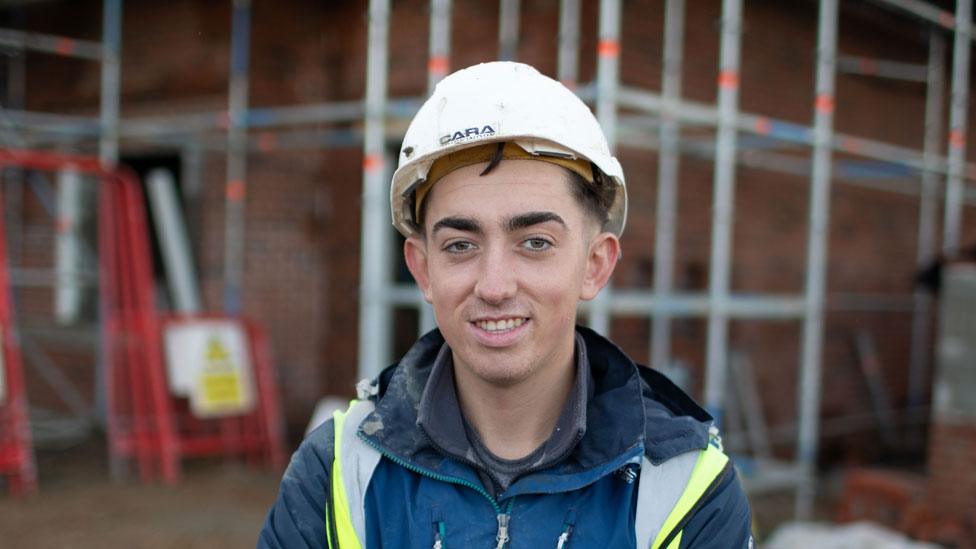
Lewis Maloney is building a future for himself
"At school I don't think you learn about it a lot," says 23-year-old apprentice bricklayer Lewis Maloney.
"They just push you to go to college, they don't tell you about apprenticeships or other options like that."
Lewis is working on a housing development site about four miles outside of Preston city centre.
While you might find apprentices working in construction across the country, in Preston, something a bit different is happening.
"About 10 years ago we were approached by the construction industry training board to run a pilot project to look at the concept of sharing apprentices in an area," says Jane Smith, a manager at the Lancashire-based charity Calico.
"The brickwork element on a site might only be six months, the joinery might be eight months and when their next contract was in a different area of the country, young apprentices were becoming displaced.
"So we ran a pilot that essentially shares apprentices between contractors working in the local area and we move apprentices around until they've completed their full apprenticeship framework."
It's a simple-sounding idea that's led to more young apprentices completing their training - and it's now been adopted by Preston City Council.
But it's just one aspect of a much wider project.
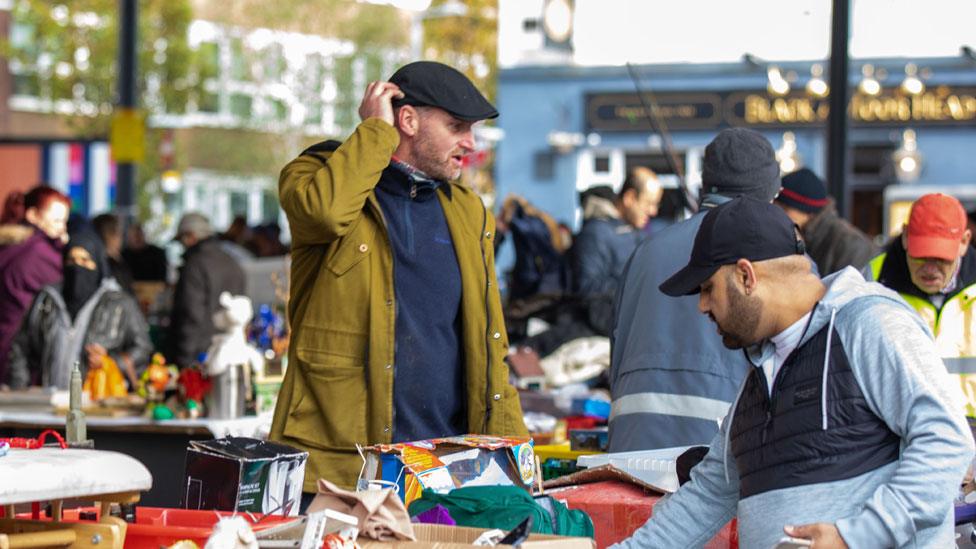
Preston's thriving market is at the centre of the community
"The gap between rich and poor has not really shrunk in any way, shape or form in the last 20 or 30 years," says Matthew Brown, a Labour councillor and the leader of Preston City Council.
"Community wealth building, or the Preston Model, as it's being applied here, is doing things that's looking at that.
"We're in the process of establishing a regional co-operative bank across Lancashire, Merseyside and Cumbria. We're looking at worker and employee ownership. We're building things that will be owned by the city council, such as a cinema development. We're looking at community energy, community land trusts.
"And if you put that together with policies through the planning process, local spending, local investment, trying to get a real living wage into the community and other policies as well around affordable housing, it's quite powerful."
Beyond encouraging small companies and employee-owned models, Preston's councillors also encourage larger employers to use more local procurement.
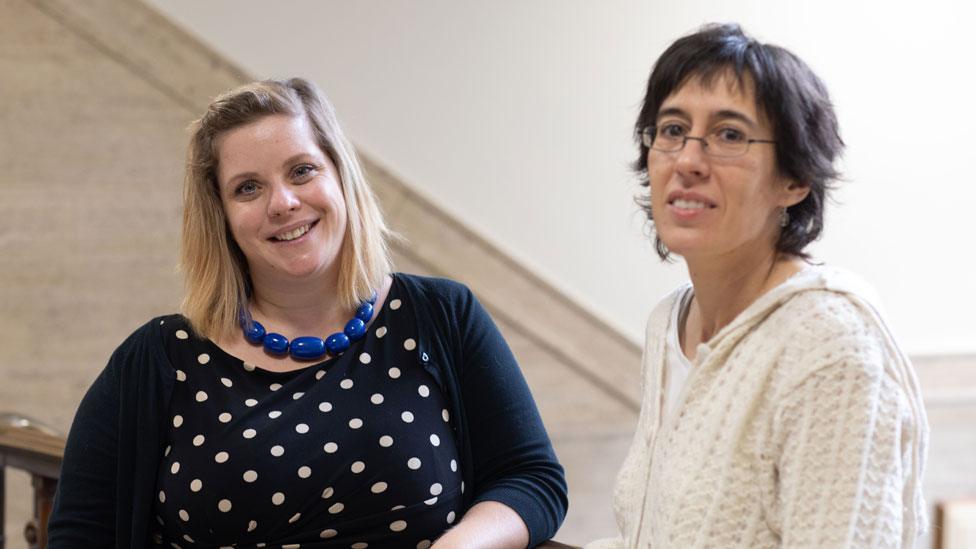
Marta Boixados (right) is visiting from Spain to advise council official Shirah Bamber
Perhaps the most obvious example has been throughout the pandemic, when businesses have been encouraged to buy face masks and PPE made locally. Preston City Council says that has created about 80 jobs.
Community wealth building is not a new idea. The Preston Model is based on projects in the Mondragon area of Spain's Basque Country and Cleveland in the United States.
"It's important to create a culture that can stem from schools until university, of co-operation, of collaboration," says Marta Boixados.
Marta works for Mondragon Corporation, one of the largest worker co-operatives in the world, and is visiting the councillors at Preston to advise them on how to succeed. She stresses the need to stay true to each town or city's existing culture.
"I think that first they have to think by themselves, to find their own way," she says.
Preston's own way currently involves a huge range of projects that come under the Preston Model banner.
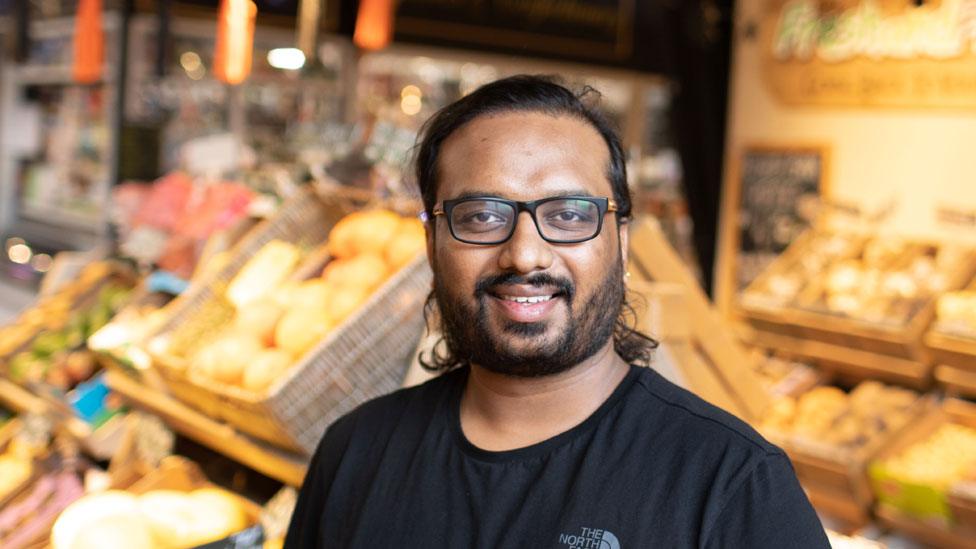
Monish Mohan is helping fellow students facing food poverty
Monish Mohan is a student at the University of Central Lancashire. He moved to Preston from Kerala in India during the pandemic, and soon set up a food hub for fellow students struggling to make ends meet.
"It's something for students and run by students," Monish says.
"During the pandemic, international students suffered a lot. If they're not employed and back home their parents are getting sick, some of them chose to stay hungry. And that's how food poverty started among the south Asian students here."
With help from the council, the food hub gradually expanded and eventually became an important source of information about Covid and vaccines for the city's large south Asian community. Councillors like Matthew Brown say projects like that are a key part of the Preston Model.
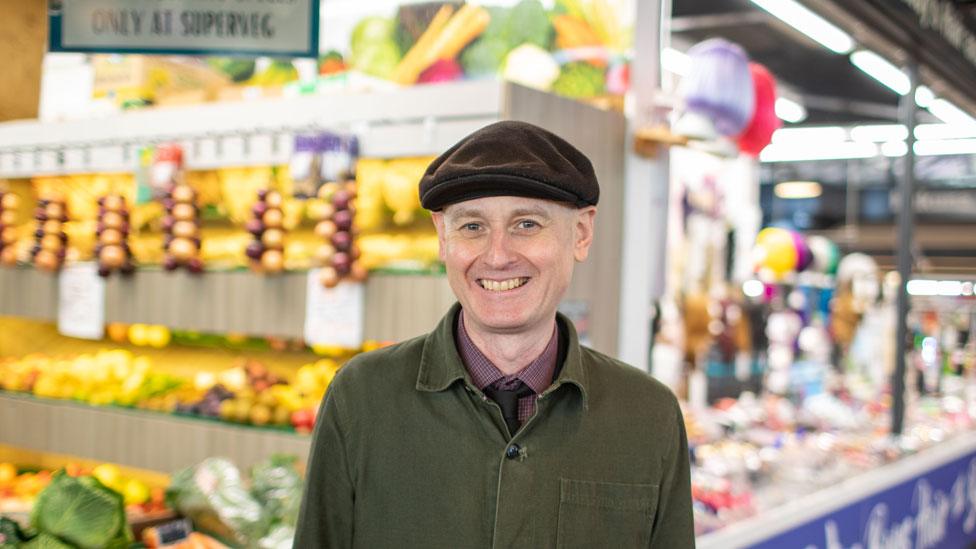
Council leader Matthew Brown is spearheading the scheme
But there is opposition on the local council too.
"The issue with the Preston Model is it's basically a marketing slogan more than anything else," says John Potter, the leader of the Liberal Democrat group on Preston City Council.
"For three years we have been asking for any sort of evidence - jobs created, investment into the city, economic growth - none of which has ever come forward.
"There are good things happening in Preston, such as a brilliant university, excellent businesses, but would they have still had their growth without the Preston Model? At the moment you have to say 'yes' because there's no evidence to the contrary.
"I knock on thousands of doors a year and I can genuinely say not a single solitary person has ever, when I've asked what issues are you interested in, not one of them have said the Preston Model.
"They care more about are the potholes on the road fixed? Is the hospital still up to scratch here in Preston?
"These are the issues that people care about, a marketing gimmick by the local Labour party isn't one of them."
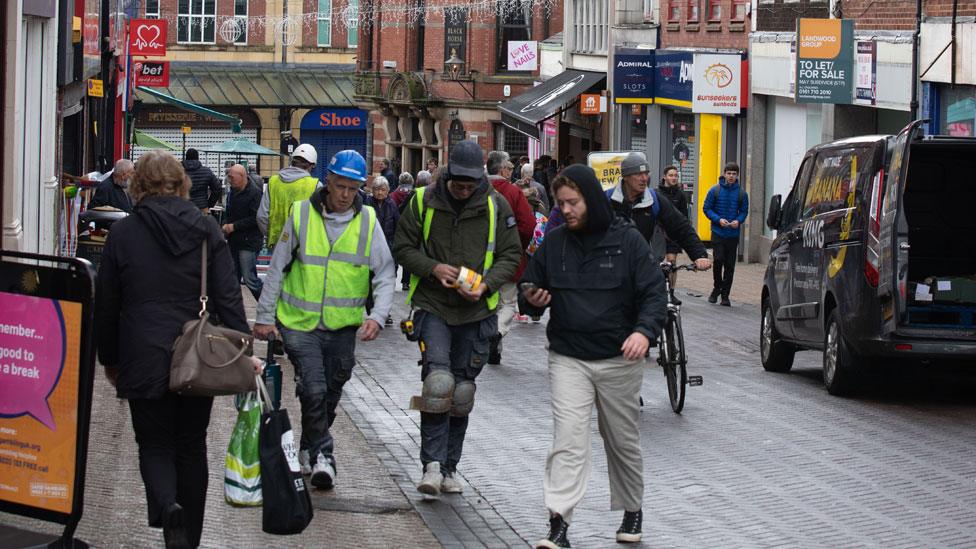
Are residents more concerned about the state of local services?
Whether it's a clever piece of political marketing or a new way of economic thinking, the Preston Model is something that's been noticed in Westminster.
John McDonnell was a vocal supporter during his time as shadow chancellor and the current Labour frontbench are keeping a close eye on its success.
Despite the gulf in political ideology, it's not difficult to see similarities between the Preston Model and Boris Johnson's "levelling up" agenda.
Certain towns and cities across the country, including Preston, have been granted funding from various pots of government money designed to improve so-called "left behind" areas.
Those announcements, along with the government's long-promised Levelling Up White Paper, due by the end of the year, should provide some specifics as to what the policy will really mean for voters.
In the absence of that detail, it's been suggested that Preston could be used as a model for growth elsewhere.
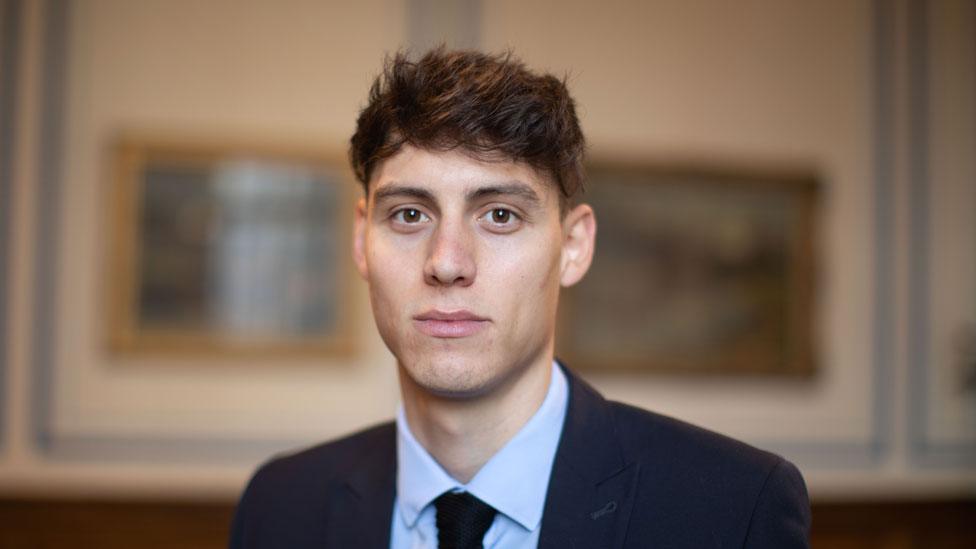
Labour councillor Freddie Bailey is looking to the long term
"A lot of our work is with anchor institutions," says Freddie Bailey, the Labour councillor responsible for leading on community wealth building.
"Institutions that are anchored to that community, that will be there for the long term, so that could be schools, hospitals, it could be a football club or a cricket club or a community centre.
"Even whether it's a small town or village - there's going to be institutions there that have that wealth and it's about using that wealth to benefit as many people as possible."
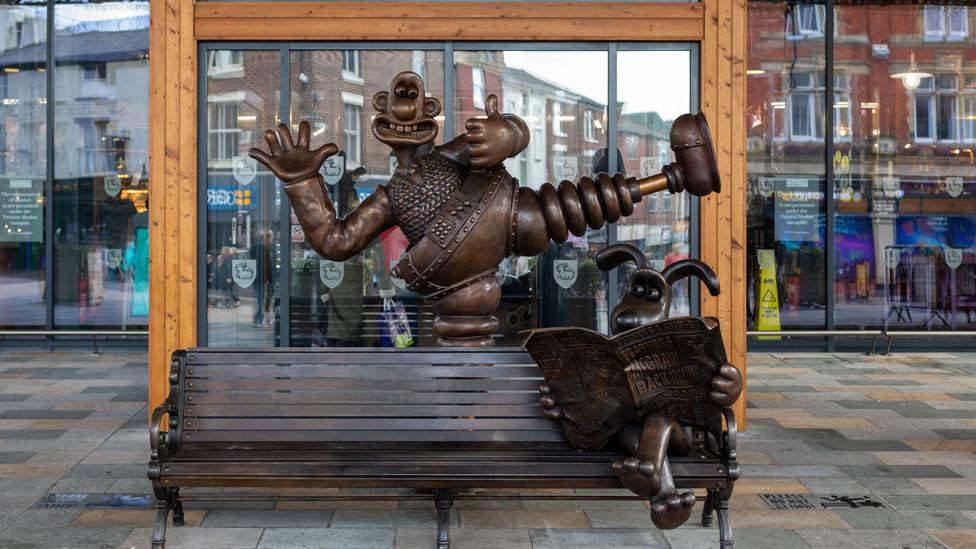
Some Preston residents are happy with the plans
One source familiar with the Preston Model and other investment models describes community wealth building as a useful tool.
But they warn that local business and procurement "isn't an answer to every issue".
If you withdrew the multinational aerospace company BAE, one of the area's largest employers, or shut down the nearby Springfield nuclear industry, they say: "Preston would have a real problem".
Listen to Jack's report on BBC Radio 4's Westminster Hour at 2200 GMT on Sunday, or you can listen back on BBC Sounds.